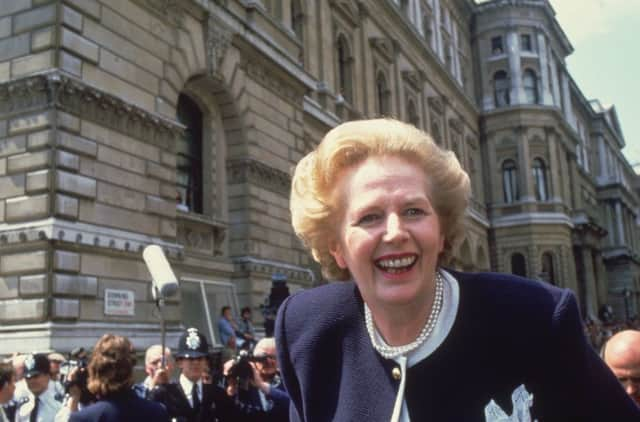Margaret Thatcher '˜stood alone' on key EU decision


Files released by the National Archives show how by the autumn of 1985 chancellor Nigel Lawson had concluded the government’s monetarist policies for controlling inflation and the public finances were “running out of steam”.
Mr Lawson, who had been hit by a run on the pound, warned that only joining the ERM – a forerunner of the euro which linked the exchange rates of the European member states – would convince the markets that the UK was committed to fiscal discipline.
Advertisement
Hide AdAdvertisement
Hide Ad“I am forced to conclude that not to join now would be a historic missed opportunity in the conduct of economic policy which we would before very long come bitterly to regret,” he wrote in a briefing note to the prime minister.
“My judgment is shared not only by the governor of the Bank of England, but also by senior officials in both the Treasury and the bank.”
The scene was set for a showdown on 13 November 1985 at what was to be one the most tumultuous meetings of Mrs Thatcher’s premiership.
Lined up alongside Mr Lawson were the bank governor Robin Leigh-Pemberton, foreign secretary Sir Geoffrey Howe, trade and industry secretary Leon Brittan, Tory Party chairman Norman Tebbit, the leader of the Commons John Biffen, chief whip John Wakeham, and the veteran cabinet fixer Willie Whitelaw.
The official note of the meeting shows it opened with Mr Lawson arguing that any suggestion the UK enjoyed greater freedom of action outside the ERM was “illusory” while joining would bolster the confidence of the markets.
He was supported by Mr Brittan and even Mr Tebbit – with only Mr Biffen voicing any doubts.
When Mrs Thatcher tried to argue back, Sir Geoffrey and Mr Leigh-Pemberton weighed in in support of joining while Lord Whitelaw said he was prepared to trust the judgment of the chancellor and the governor.
“If they felt the time was right to join, their views needed to be given full weight,” he said, at which point Mrs Thatcher abruptly shut down the discussion.
Advertisement
Hide AdAdvertisement
Hide AdThe official minute noted: “The prime minister, bringing the discussion to a close, said she had not been convinced by the arguments in favour of joining.”
Mrs Thatcher was eventually persuaded to sign up to the ERM in 1990 by John Major who – as PM two years later – presided as the UK humiliating crashed out on Black Wednesday.